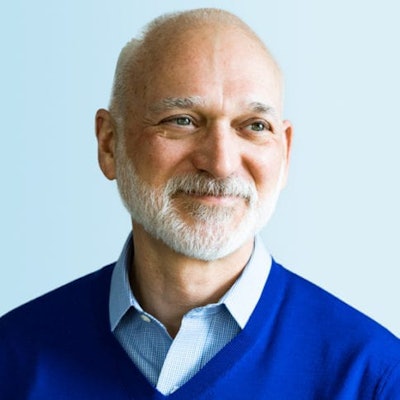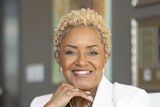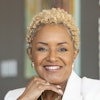With the establishment of the “Moon Shot for Equity” initiative, EAB, a higher education consulting firm, will partner with four-year universities and community colleges to close equity gaps by 2030.
As part of the first cohort committed to the initiative, the University of Wisconsin-Milwaukee (UWM), Milwaukee Area Technical College, Carthage College and the University of Wisconsin-Parkside will work toward improving graduation and enrollment rates of underrepresented students.
 Tom Sugar
Tom Sugar“This is work we have been doing, but now we are going to double down and we are going to be holding not only ourselves accountable but our region accountable,” said Dr. Phyllis King, associate vice chancellor for academic affairs at UWM. “It is a collaborative effort and it’s a support network. We are working together to really grow more graduates, which will ultimately lead to a better quality of life and outcomes for our community and our region.”
Over the years, the city of Milwaukee has faced equity challenges as many of its high schools are considered the most segregated in the United States, according to Tom Sugar, vice president of partnerships at EAB.
“We saw through the pandemic that the outcomes on health are very inequitable as well,” he added. “Even though [those leaders] may face the same kind of budget cuts and concerns around enrollment, they decided … to charge forward.”
Around half of Black and Latinx students earn their degrees within six years compared to 70% of White students, according to LaToya White, senior director with EAB’s Student Success Collaborative.
While earning a postsecondary degree, the overall financial cost can create barriers for many students. Beyond tuition and housing, students may accumulate fees during the semester such as parking or additional course fees.
Additionally, first-generation students often lack a support system that is familiar with the structure of higher education.
“Whether it is because of their experiences that they are bringing in or because of systemic barriers they might bring in, it is important that the foundation of how schools operate recognizes that every student needs an equitable start in whatever those policies and practices might be,” said White.
EAB’s initiative will be launched in a phased approach. Institutions will first undergo diagnostic assessments focused on change management, campus climate and equity practices to determine a starting point.
 LaToya White
LaToya WhiteFrom there, each campus will implement 15 research-based best practices.
Under these best practices, and in terms of academic policies, institutions are advised to “audit registration holds and revise policies, offer retention grants for in-need students, assess and align math requirements, offer college-level gateway courses, create undergraduate academic degree maps, leverage meta-majors to ease student pathways and create pathways for transfer students,” according to EAB.
The practices suggest institutions use technology to assist with the advising process and establish an environment of student belongingness.
“There’s that coordination of peers through this technology which is really powerful for us,” said King. “And I think that is going to very much facilitate this initiative to help us succeed. We also want to build confidence and belongingness with our students, so they feel a greater connectedness whenever they have an issue or problem.”
There will also be a focus on assisting adult learners and helping them finish their degree. According to EAB, 35 million adults over the age of 25 have completed some college credits without earning a postsecondary degree.
Additionally, participating institutions will partner with local organizations and high schools to help underrepresented students find universities, scholarship opportunities and counselors. The information and resources will be offered at no cost through College Greenlight.
“We want to bring in as many regions and institutions that want to do this work,” added White. “We cannot eliminate the equity gap in higher education if we say, ‘we are only going to do it for 10 schools.’ If you want to do this work, we will commit to doing it with you.”
Throughout the process, EAB will provide the necessary technology and advising to institutions. Schools will also receive counseling from Georgia State University and Houston GPS.
“We invite people to join us and we invite them to scrutinize the opportunity and scrutinize EAB’s support of it,” said Sugar. “We will in turn scrutinize their level of commitment as well. And I fully anticipate that there are lots of great leaders out there who will seize the moment and join the effort.”
White emphasized that this work “takes everyone’s voices ” — students, faculty and staff.
“We are not trying to say that we are trying to fix an institution, fix a student or fix an individual,” Sugar added. “We are really trying to fix a system. We are trying to fix institutional policies and practices. So, we welcome the voices, the questions, the expertise, suggestions and guidance.”
Sarah Wood can be reached at [email protected].


















